Throughout history, countless remarkable and influential figures have emerged. Today, however, we place a spotlight on impressive women. These influential and inspirational women refused to be quiet, making substantial impacts as they transformed the world – from advocates for women’s rights and pioneering fighters for equality to innovators, entrepreneurs, scientific trailblazers, and powerful leaders. Each of these women accomplished extraordinary achievements, altering the existing paradigm. Although we acknowledge that this is not a comprehensive list (indeed, we struggled to narrow it down to just 25!).
Here are the 25 Most Important Women in History.

Margaret Sanger (United States, 1879-1966)
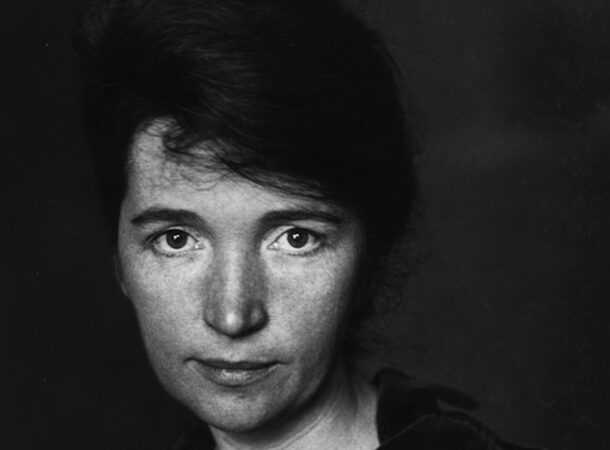 https://www.plannedparenthood.org/about-us/who-we-are/our-history
https://www.plannedparenthood.org/about-us/who-we-are/our-history Thanks to Margaret Sanger, anyone who is sexually active and doesn’t want to become a parent now has a way out. As a nurse in New York City’s impoverished Lower East Side, Sanger witnessed the devastating consequences of illegal and unsafe abortions on women. These experiences led her to believe that access to contraception was crucial for women’s freedom and ability to escape poverty. Although Sanger was born when contraception was illegal, she dedicated her life to changing that. Sanger firmly established the American Birth Control League and played a pivotal part in developing and approving the first FDA-approved oral contraceptive, Enovid.
Beulah Louise Henry (United States, 1887-1973)
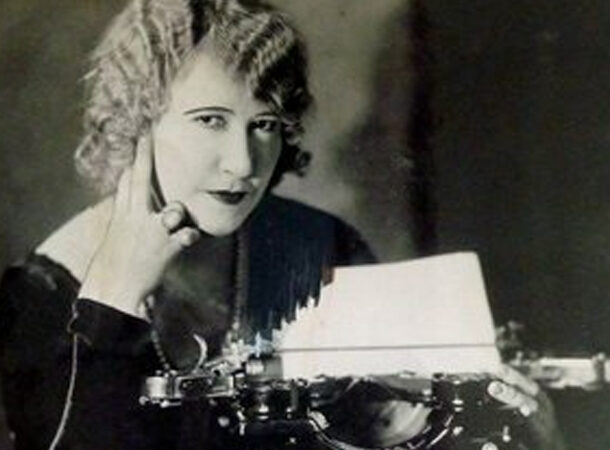 https://www.invent.org/inductees/beulah-louise-henry
https://www.invent.org/inductees/beulah-louise-henry Beulah Louise Henry, an extraordinary inventor and entrepreneur, conceived over 100 inventions that continue to improve our daily lives. They include the vacuum ice cream freezer, the can opener, and a sewing machine that didn’t require bobbins (whatever that may be). Beulah’s passion for inventing was unstoppable, and she claimed that she couldn’t keep herself from inventing as new ideas just continually thrust themselves at her. Her remarkable contributions to innovation earned her a well-deserved place in the National Inventors’ Hall of Fame in 2006.
Madam C.J. Walker (United States, 1867–1919)
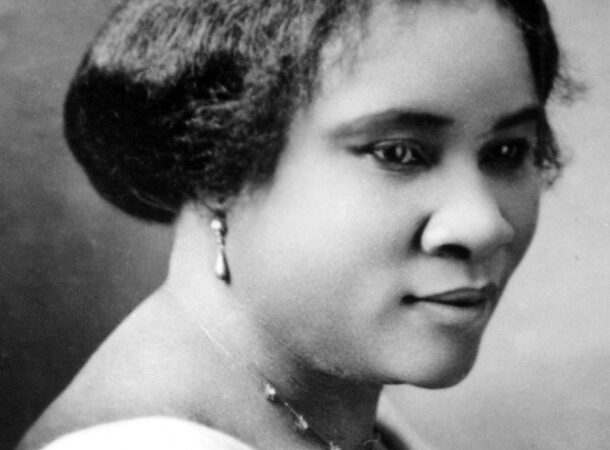 https://www.womenshistory.org/education-resources/biographies/madam-cj-walker
https://www.womenshistory.org/education-resources/biographies/madam-cj-walker Before Mary Kay and Avon, Madam C.J. Walker revolutionized the hair and beauty industry for black women with her door-to-door sales approach. Her pioneering efforts made her one of America’s first self-made female millionaires, and established a vast network of 40,000 brand ambassadors. Walker’s success enabled her to support women’s education through scholarships at the Tuskegee Institute and generously contribute to organizations like the NAACP, the Black YMCA, and various charities, making a lasting impact on the beauty industry.
Lucy Diggs Slowe (United States, 1882–1937)
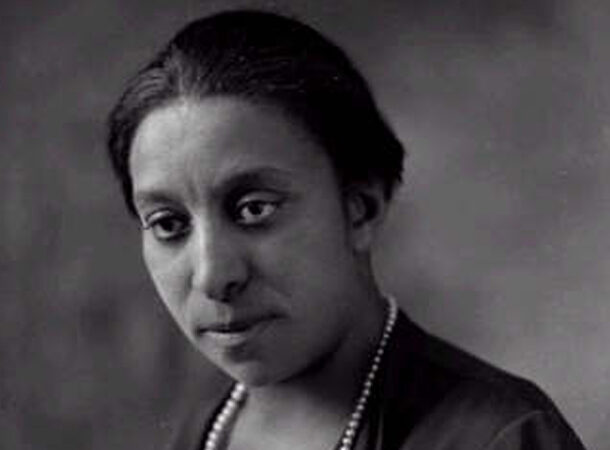 https://msa.maryland.gov/msa/educ/exhibits/womenshallfame/html/slowe.html
https://msa.maryland.gov/msa/educ/exhibits/womenshallfame/html/slowe.html Lucy Diggs Slowe was an undeniable trailblazer in tennis history, and her efforts made a significant impact that resonates to this day. In 1917, she made history by becoming the first Black woman to win a national tennis title. Her impressive achievements, however, extended beyond the court, as she dedicated her life to the battle for civil rights. Lucy played a pivotal role in the founding of Alpha Kappa Alpha (AKA), the first Greek society for black women. She also held the respected position of dean of women at Howard University, leaving an unforgettable mark on education and female empowerment.
Rachel Carson (United States, 1907-1964)
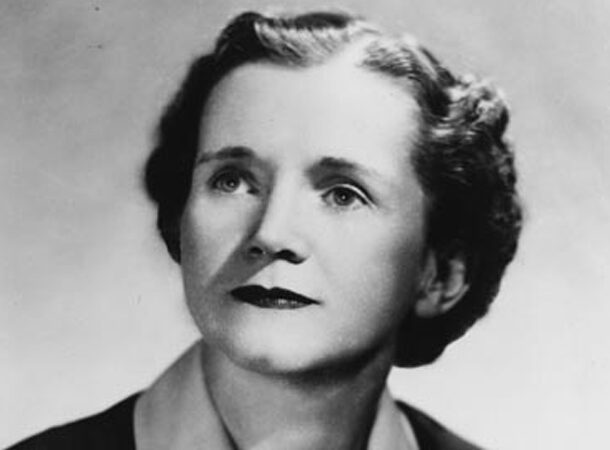 https://www.womenshistory.org/education-resources/biographies/rachel-carson
https://www.womenshistory.org/education-resources/biographies/rachel-carson The Green movement owes a massive debt to Rachel Carson. Her groundbreaking book, Silent Spring, shed light on the harmful impact of pesticides like DDT on birds and the environment. This eye-opening revelation played a significant role in the establishment of the Environmental Protection Agency. Carson’s passion for nature and the environment extended beyond her famous book. She also wrote engaging articles and novels, including a celebrated sea trilogy (Under the Seawind, The Sea Around Us, and The Ends of the Earth), which explored marine life through captivating stories available to all.
Coco Chanel (France, 1883-1971)
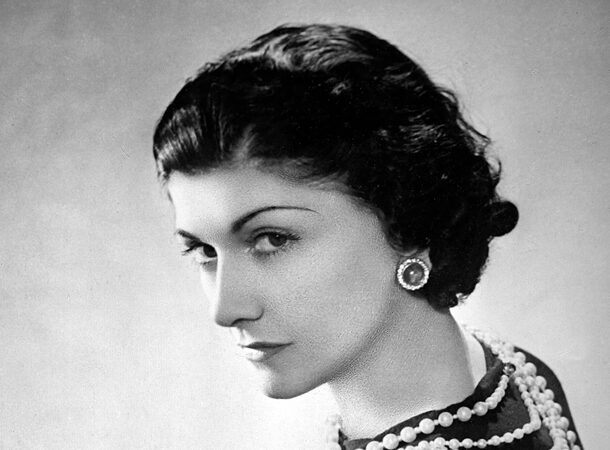 https://www.time.com/time/magazine/article/0,9171,1553771,00.html
https://www.time.com/time/magazine/article/0,9171,1553771,00.html Coco Chanel, the early twentieth-century fashion icon, transformed women’s fashion by introducing new, more comfortable designs. She freed women from the restrictive corsets and frilly garments that dominated the industry. Chanel’s creations, such as the tweed blazer and skirt, two-toned ballet flats, little black dress, costume jewelry, and quilted bag with a chain strap, became timeless fashion staples. In 1923, she branched into fragrances with the launch of Chanel No. 5, becoming the first fashion designer to do so. During World War II, Chanel temporarily closed her shops but made a comeback in 1954 when she introduced the world to bell bottoms. She passed away in 1971, and Karl Lagerfeld took over as the head designer of the fashion house in 1983, carrying on her legacy.
Jane Addams (United States, 1860-1935)
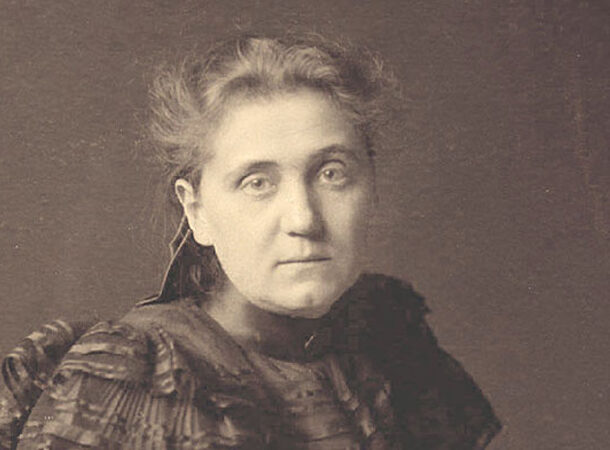 https://www.nobelprize.org/prizes/peace/1931/addams/biographical/
https://www.nobelprize.org/prizes/peace/1931/addams/biographical/ Jane Addams is responsible for the creation of the modern-day social worker. She pioneered the concept of settlement homes, which offered night classes for adults, a kindergarten, an eatery, a gym, and social groups to foster a feeling of community among the poor in every neighborhood. Her Hull House housed approximately 25 women and was visited by over 2,000 people per week at its peak. Addams was appointed to prominent state government and community boards as her community influence grew, and she focused on improving sanitation, midwifery, food safety, and reducing narcotics consumption. An ardent pacifist and outspoken advocate for women’s suffrage, Addams ultimately became the first American woman to win the Nobel Peace Prize.
Mother Teresa (Albania, 1910-1997)
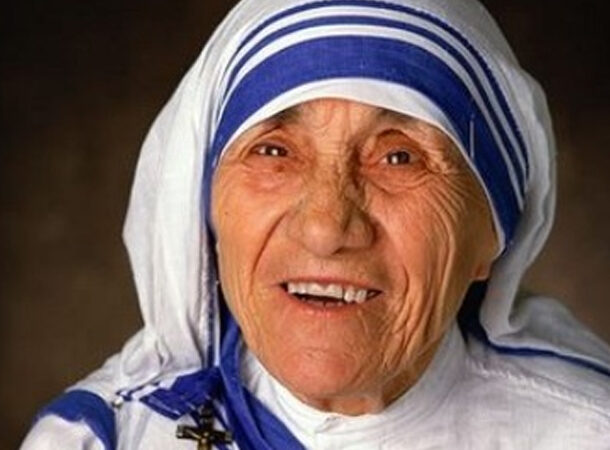 https://www.nobelprize.org/prizes/peace/1979/teresa/biographical/
https://www.nobelprize.org/prizes/peace/1979/teresa/biographical/ Originally named Agnes Bojaxhiu and born to Albanian parents during the Ottoman Empire, the diminutive nun embarked on a journey to India in 1929. Starting with a modest group of 13 members in Kolkata (formerly known as Calcutta), she established a missionary community that would grow into a worldwide network of over 4,000 sisters, operating orphanages and AIDS hospices. Although she faced criticism for lacking extensive medical training, not addressing poverty on a larger scale, opposing birth control and abortion, and having associations with dictators, her dedication earned her the Nobel Peace Prize. It inspired countless volunteers to follow in her footsteps.
Today, she continues to be revered, as her commitment to serving others will be recognized with her canonization as a Catholic saint while adorned in her signature white habit.
Sojourner Truth (United States, 1797 – 1883)
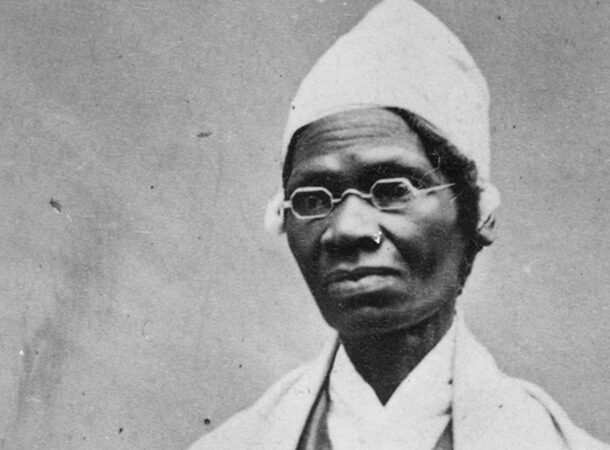 https://www.womenshistory.org/education-resources/biographies/sojourner-truth
https://www.womenshistory.org/education-resources/biographies/sojourner-truth Sojourner Truth is an incredibly inspiring figure in American history. As an African-American abolitionist and women’s rights activist, Truth fought tirelessly for the rights of both women and African Americans. Truth’s journey was marked by great adversity. She endured separation from her family and was sold into slavery, alongside a flock of sheep, for only $100. In 1829, she escaped to freedom with her infant daughter Sophia but tragically had to leave her other two children behind. During the late 1840s, Truth became a prominent advocate for African American rights, prison reform, and universal suffrage. Thanks to her tireless work and unwavering dedication, she became one of the most renowned activists in the struggle against slavery and an early advocate for women’s rights.
Amelia Earhart (United States, 1897–1939)
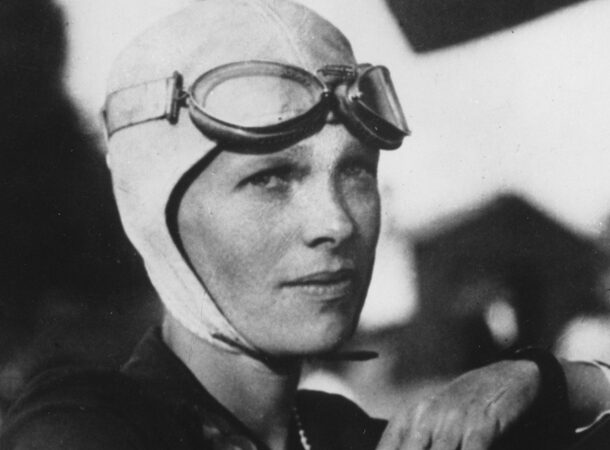 https://www.ameliaearhart.com/
https://www.ameliaearhart.com/ A list of the most important women would only be complete with a mention of this legendary woman. Amelia Earhart, born in Kansas, ignored societal norms from a young age. She challenged gender stereotypes by playing basketball, studying auto repair, and even pursuing higher learning before following an aviation career. She acquired her pilot’s license in 1921 and made history in the world of aviation by accomplishing numerous groundbreaking solo flights and other feats. Tragically, Amelia Earhart disappeared somewhere over the Pacific Ocean while attempting to become the first person to circumnavigate the globe, and she was never located.
Ada Lovelace (United Kingdom, 1815–1852)
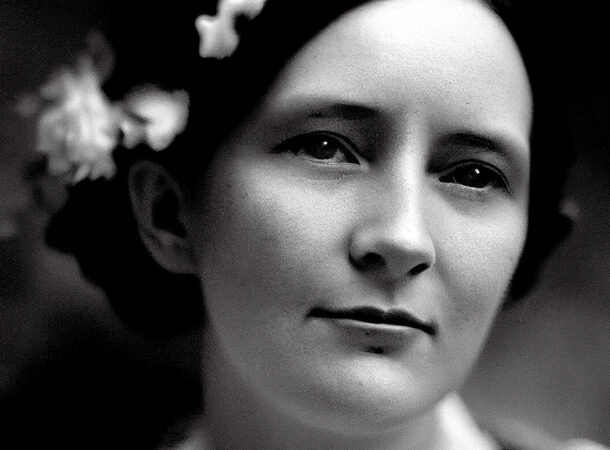 https://scientificwomen.net/women/lovelace-ada-59
https://scientificwomen.net/women/lovelace-ada-59 Despite being born into a privileged family, with her father being the renowned poet Lord Byron, Ada Lovelace made her mark as the world’s first computer programmer, but nobody knew it then. As a mathematician, she was admired by society and had friendships with influential figures like Charles Dickens. Unfortunately, cancer took her life at the young age of 36. Her notes took nearly a century to gain recognition as an algorithm designed for computers and software, highlighting her visionary ideas and contributions that were far ahead of their time.
Ruth Bader Ginsburg (United States, 1933–2020)
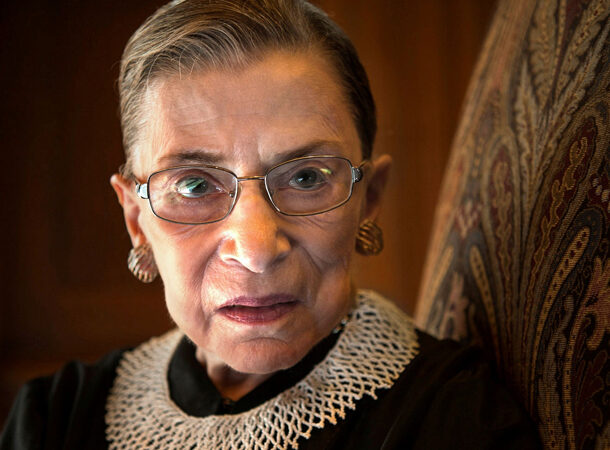 https://www.supremecourt.gov/about/biographyginsburg.aspx
https://www.supremecourt.gov/about/biographyginsburg.aspx During Ruth Bader Ginsburg‘s time at Harvard Law School, she was one of less than ten women in a class of 500 students. Despite impressive academic achievements, she struggled to find employment after graduating from Columbia Law School. However, she eventually became a law professor at Rutgers Law School, dedicating herself to fighting gender discrimination. As a lawyer, she argued six cases before the Supreme Court – and won five. As a Supreme Court justice, she championed equality and civil rights while battling health issues and cancer. Her passing in September 2020 left the world mourning the loss of a brilliant, determined, and fearless woman affectionately known as “The Notorious RBG.”
Katherine Johnson (United States, 1918-2020)
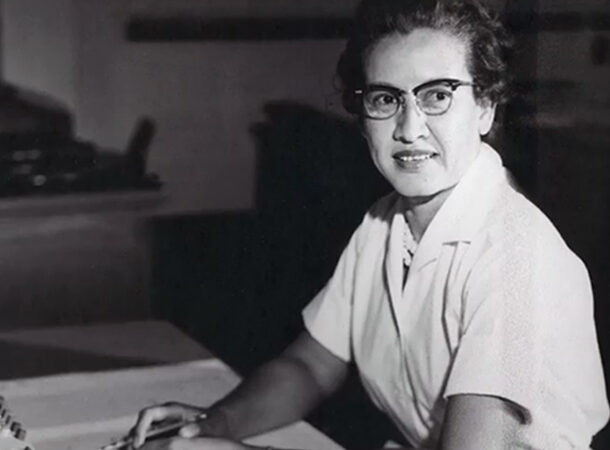 https://www.nasa.gov/content/katherine-johnson-biography
https://www.nasa.gov/content/katherine-johnson-biography Katherine Johnson, a brilliant mathematician, made significant contributions to the scientific field that were finally acknowledged in the film “Hidden Figures” in 2016. Her calculations were critical in putting astronaut John Glenn into orbit in 1962 and sending Apollo 11 to the Moon later that year. In 2015, Barack Obama awarded her the Presidential Medal of Freedom for her incredible contributions. Even after passing at the remarkable age of 101, Katherine Johnson’s legacy lives on. In 2021, Northrop Grumman honored her by naming a spacecraft after her, and her memoir, “My Remarkable Journey,” was published posthumously, providing a glimpse into her incredible life and accomplishments.
Hedy Lamarr (Austria, 1914–2000)
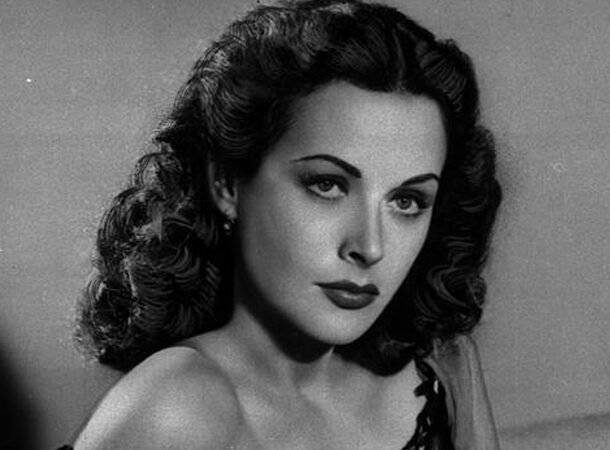 https://hedylamarr.com/
https://hedylamarr.com/ Hedy Lamarr, the glamorous and stunning film star of Hollywood’s Golden Age, left an unforgettable mark that extends far beyond her acting career. Together with composer George Antheil, she played a pivotal role in developing a system that essentially pioneered the foundation of basic GPS technology. However, Lamarr was unjustly excluded from the patent due to her non-American citizenship and never received proper compensation for her remarkable contribution. Her significant contribution earns the “Mother of WiFi” a well-deserved place among the most important women in history.
Malala Yousafzai (Pakistan, 1997– )
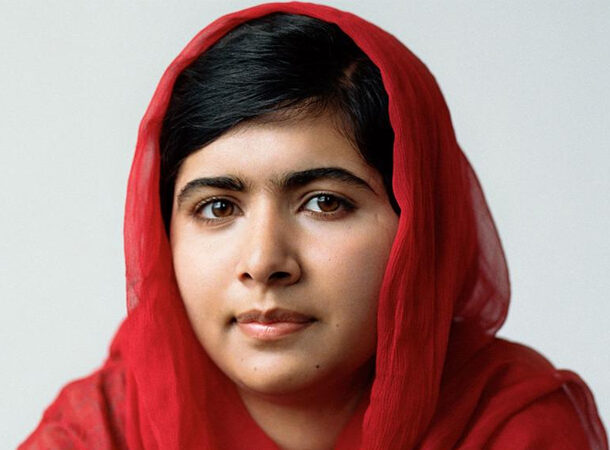 https://malala.org/malalas-story
https://malala.org/malalas-story Growing up in a Pakistani village, Malala’s education was shaped by her father, a teacher who operated an all-girls school. However, when the Taliban banned girls’ education, her whole life changed. Showing remarkable courage at the tender age of 15, Malala fearlessly spoke out against the Taliban’s oppressive actions, which led to her being shot in the head – an event she miraculously survived. At 17, Malala Yousafzai was recognized for her unwavering dedication to peace and education, and she received the prestigious Nobel Peace Prize in 2014. Her resilience and commitment to fighting for the rights of girls and education have made her an inspiration worldwide.
Harriet Tubman (United States, 1822-1913)
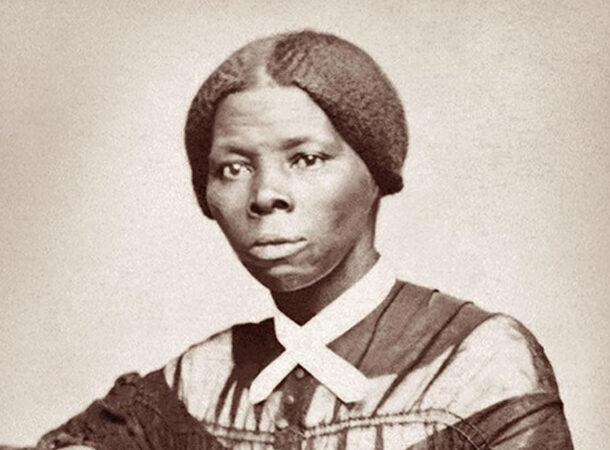 https://www.womenshistory.org/education-resources/biographies/harriet-tubman
https://www.womenshistory.org/education-resources/biographies/harriet-tubman Harriet Tubman‘s incredible journey began in slavery, but she dared to dream of freedom. In the years following her escape from slavery, she dedicated herself to freeing over 300 slaves via the Underground Railroad. As the Civil War erupted, she staunchly supported the Union cause, serving as a spy and nurse. She later led the Combahee Ferry Raid, which liberated over 700 slaves. Later in life, Tubman became a prominent advocate in the abolitionist movement, fighting not only against slavery but also for women’s suffrage. She was instrumental in liberating the country from the harsh shackles of slavery and discrimination.
Rosalind Franklin (United Kingdom, 1920-1958)
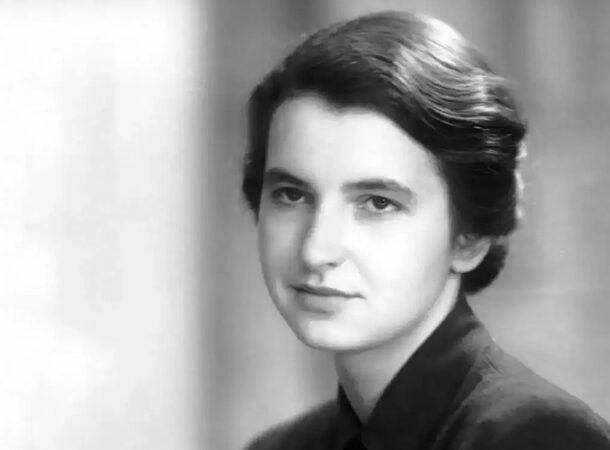 https://www.britannica.com/biography/Rosalind-Franklin
https://www.britannica.com/biography/Rosalind-Franklin British scientist Rosalind Franklin was pivotal in advancing our understanding of DNA. Through her use of X-ray diffraction methods, she not only determined DNA’s density but also unraveled its molecular structure. This groundbreaking discovery laid the foundation for James Watson and Francis Crick’s subsequent revelation that DNA takes the form of a double helix. Franklin’s contribution revolutionized the field of genetics, reshaping our comprehension of heredity and the transmission of genes within families.
Benazir Bhutto (Pakistan, 1953-2007)
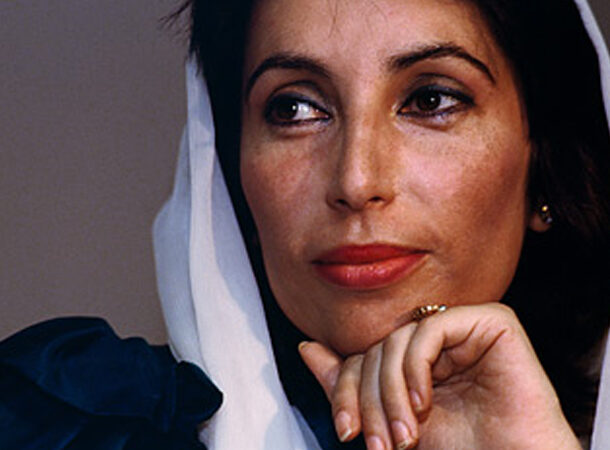 https://www.biography.com/people/benazir-bhutto-9211744
https://www.biography.com/people/benazir-bhutto-9211744 In 1988, Benazir Bhutto’s name was written into history when she became Pakistan’s first female Prime Minister. Following a military coup that toppled her father’s government, she assumed the leadership of the Pakistan People’s Party and advocated (and won) democratic elections – a mere three months after giving birth. Benazir Bhutto defied societal norms in a male-dominated Islamic society, emerging as the political successor to her late father. Although she struggled to maintain power, she achieved the remarkable feat of serving as the Prime Minister of Pakistan on two separate occasions, despite facing exile twice in her career.
Indira Gandhi (India, 1917-1984)
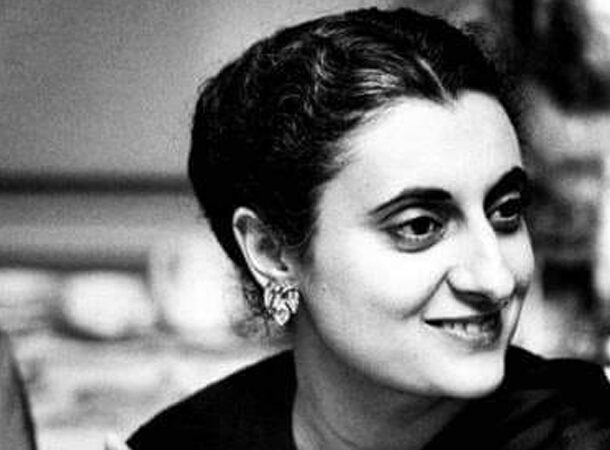 https://www.pmindia.gov.in/en/former_pm/smt-indira-gandhi/
https://www.pmindia.gov.in/en/former_pm/smt-indira-gandhi/ Indira Gandhi grew up under the watchful eyes of her father, Jawaharlal Nehru, India’s first Prime Minister. When she was elected Prime Minister in 1966, a TIME magazine cover proclaimed, “Troubled India in a Woman’s Hands.” Her steady leadership guided India through challenging times over the next two decades. Despite controversies, she navigated the country through a recession, a corruption scandal, a famine, the first atomic bomb test, and a civil war in neighboring Pakistan. Under her guidance, a new state, Bangladesh, emerged. Sadly, Indira was assassinated in 1984. She remains the world’s longest-serving female Prime Minister, a remarkable legacy that endures to this day.
Sally Ride (United States, 1951–2012)
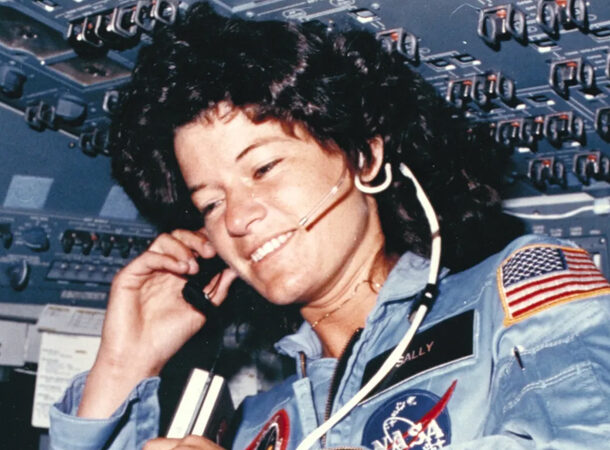 https://www.nasa.gov/audience/forstudents/k-4/stories/nasa-knows/who-was-sally-ride-k4.html
https://www.nasa.gov/audience/forstudents/k-4/stories/nasa-knows/who-was-sally-ride-k4.html In 1983, Sally Ride made history by flying on the Challenger and becoming the first American woman to journey into space. She inspired girls and women to explore careers in science, technology, engineering, and math. She contributed to the space science field as the California Space Science Institute director, writing children’s books and collaborating with science programs. After her passing, it was revealed that she had spent 27 years with her partner, Tam O’Shaughnessy, making her the first-known LGBTQ astronaut. Sally Ride was posthumously honored with the Presidential Medal of Freedom.
Golda Meir (Israel, 1898-1978)
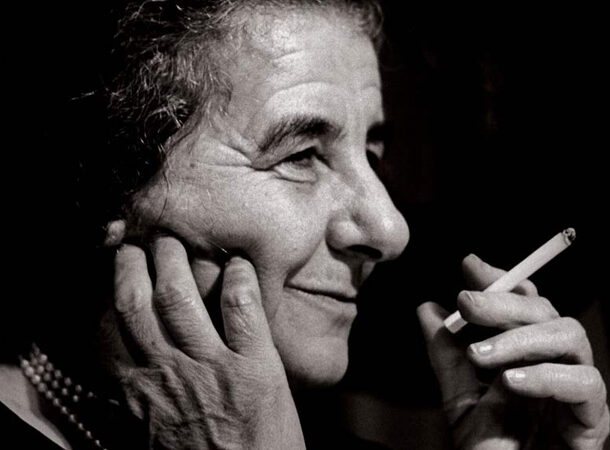 https://jwa.org/encyclopedia/article/meir-golda
https://jwa.org/encyclopedia/article/meir-golda Golda Meir was a remarkable and influential figure in Israeli politics. Known for her tall stature, straightforward manner, and unwavering determination, she dedicated her life to serving the Jewish state she helped establish. After a successful political career, which included serving as Israel’s Labor Minister and Foreign Minister, she assumed the role of Prime Minister in 1969. At that time, Israel was thriving and still celebrating its triumph in the Six-Day War against Egypt, Jordan, and Syria.
However, a few years later, the Yom Kippur War erupted, catching Israel off guard and causing significant challenges. Although Israel eventually emerged victorious with the support of the United States, the government faced substantial criticism for its lack of preparedness. Meir, who shouldered much of the blame, decided to step down from her position in 1974.
Empress Dowager Cixi (China, 1835–1908)
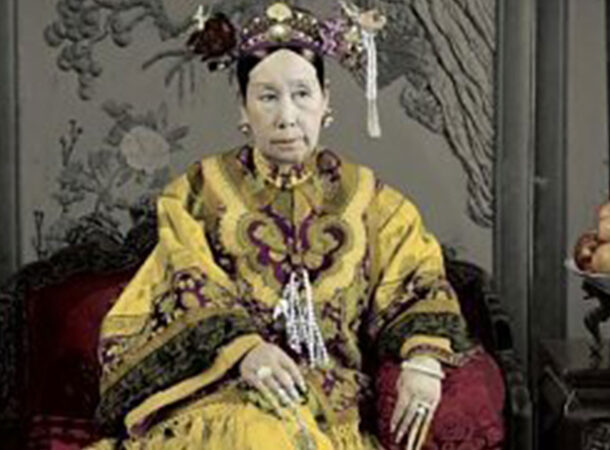 https://www.nationalgeographic.com/history/history-magazine/article/profiles-china-empress-dowager-cixi-emperor-guangxu
https://www.nationalgeographic.com/history/history-magazine/article/profiles-china-empress-dowager-cixi-emperor-guangxu Cixi acquired an excellent education despite being born into a humble family in 1835 during the Chinese Qing dynasty. She was chosen as one of Emperor Xianfeng’s concubines in 1851 and quickly gained his favor. Following the emperor’s death, she ascended to become his successor, eventually becoming recognized as the last empress of China. Cixi wielded tremendous influence over policies, subdued rebellions, and commanded China’s imperial court for over a half-century. Her leadership was instrumental in modernizing the country, leaving behind a remarkable legacy that endures to this day.
Eleanor Roosevelt (United States, 1884-1962)
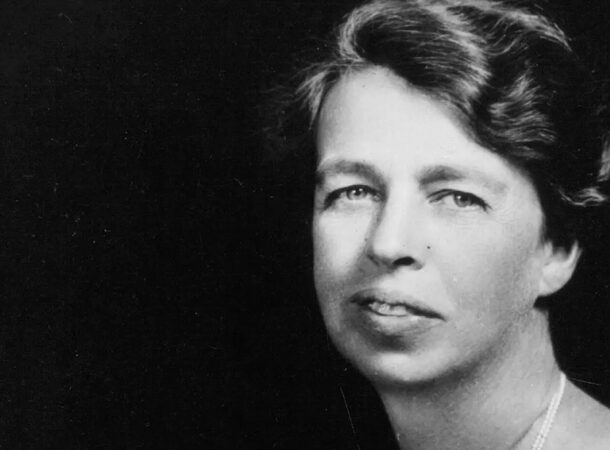 https://www.whitehouse.gov/about-the-white-house/first-families/anna-eleanor-roosevelt/
https://www.whitehouse.gov/about-the-white-house/first-families/anna-eleanor-roosevelt/ Eleanor Roosevelt was not your average First Lady. She embraced the power of the media and transformed the traditionally ceremonial role of her husband’s wife into one of active engagement and influence. Breaking barriers, Eleanor held women-only press conferences, making her the first presidential wife to do so. She championed civil rights with her platform, advocating for policies that supported the marginalized, including the poor, minorities, and women. She played a vital role in shaping social welfare programs and continued her humanitarian efforts, and contributed to developing the Universal Declaration of Human Rights and UNICEF long after her husband’s death.
Marie Curie (Poland, 1867–1934)
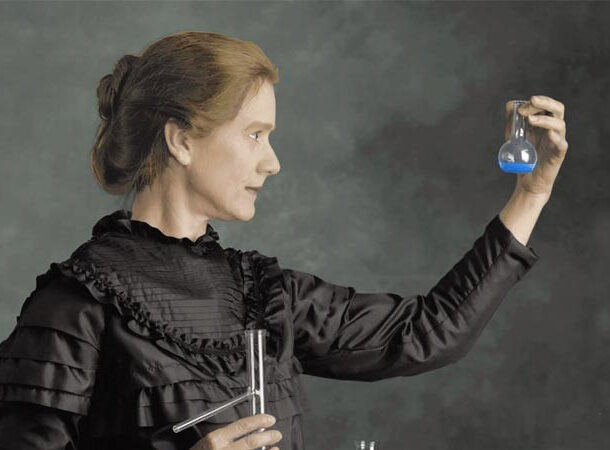 https://www.nobelprize.org/prizes/physics/1903/marie-curie/biographical/
https://www.nobelprize.org/prizes/physics/1903/marie-curie/biographical/ Marie Curie, the trailblazing physicist who forged her path in a male-dominated field, is renowned for her groundbreaking discoveries. She is most celebrated for her remarkable achievements in uncovering the elements radium and polonium and coining the term “radioactivity.” Additionally, she revolutionized the field of medical diagnostics by inventing the portable X-ray machine. Curie’s exceptional contributions to science earned her not just one but two Nobel prizes! She is also the sole individual to have been honored with Nobel prizes in two distinct scientific fields: chemistry and physics.
Shirley Chisholm (United States, 1924–2005)
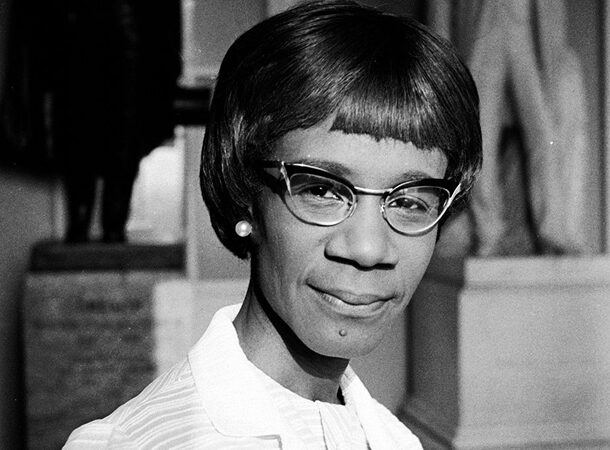 https://www.womenshistory.org/education-resources/biographies/shirley-chisholm
https://www.womenshistory.org/education-resources/biographies/shirley-chisholm In 1964, Shirley Chisholm achieved a historic milestone by becoming the second Black individual to serve in the New York State Legislature. However, her victories extended far beyond this feat. “Fighting Shirley” amassed a series of groundbreaking “firsts.” Four years later, Chisholm made history again when she was elected to the U.S. Congress. With determination, Shirley Chisholm made history as the first Black person to launch a presidential campaign in the United States (did we mention she was the first woman, too?). Shirley also served on the House Rules Committee and played a pivotal role in co-founding the National Women’s Political Caucus.



























